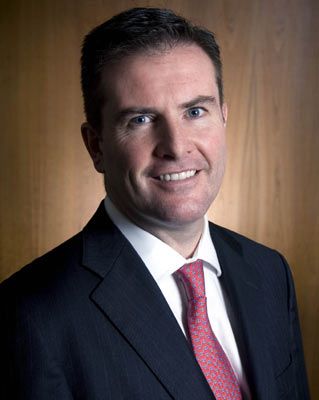THE UK JOB MARKET FOR ACCOUNTING AND FINANCE PROFESSIONALS
Published by Gbaf News
Posted on May 8, 2014
6 min readLast updated: January 22, 2026

Published by Gbaf News
Posted on May 8, 2014
6 min readLast updated: January 22, 2026

By Phil Sheridan, UK managing director of Robert Half
The job market for experienced accounting and finance professionals has tightened dramatically, according to the latest Salary Guide from Robert Half. Despite relatively high levels of general unemployment, companies are finding fewer candidates with the skills and experience needed to deliver growth strategies. Many of the most in-demand professionals are once again receiving multiple offers and counteroffers in what can aptly be called a ‘war for talent’.
The Hiring Climate
Permanent hiring for accounting and finance professionals has increased, and many organisations are looking to expand their teams. But while additional recruitment budget is available, hiring managers struggle to source and recruit the talent they need.
Companies that delay hiring in search of the ‘perfect match’ or that subject candidates to lengthy rounds of approval may find their top choices accepting offers from competing organisations. A long-expected upturn in retirements is also likely to have an effect on hiring patterns as firms look to replace highly experienced workers. Companies will need to prepare now for upcoming retirements, stepping up succession-planning efforts or offering a more gradual path to retirement for employees who desire one, including part-time or interim/contract work.
Trends Affecting Hiring

Phil Sheridan
Many small and mid-sized firms are managing the transition to FRS 102, which will replace the current UK GAAP from 1 January 2015. The brevity of FRS 102 compared with IFRS has been welcomed by many small and medium-sized enterprises (SMEs), although others are still finding they need to turn to temporary and interim workers to manage heavy workloads as well as access skills not available in-house. Pension auto enrolment is another issue facing UK businesses, and many anticipate increasing headcount to manage the operational implications of the new regulation.
As companies again turn their attention to growth, so must the role of the finance professional continue to evolve. The past few years found finance leaders focused on headcount reductions, having to do more with less. Business growth and new product and service expansion now require commercial accountants with strong business acumen and communication skills to deliver expansion strategies.
Retention Worries Reappear
Concerns about morale and retention are rising. Employees may feel modest salary gains in recent years have not kept pace with the increased value of their contributions. In addition, as workloads have expanded, many workers are expressing the desire for a better work-life balance.
These factors are leading them to seek new employment opportunities, tempting them to test the strength of the recovering job market and the going rate for their skill sets. Voluntary turnover, where employees choose to leave the business, is on the rise, and some of those who are changing jobs are receiving sizable salary increases. To attract and retain top performers, employers need to not only offer prospective hires competitive remuneration and other benefits but also to present them with defined career paths within the organisation.
Workloads Abound, Talent Pools Abate
Following several years of hiring freezes and reductions, some employers are finding that they cannot keep hiring to keep pace with rising workloads. They are seeking skilled senior and management accounting roles to help maintain productivity, control costs and expand their core teams as they focus on key growth targets.
Key to their plans are qualified and part qualified accountants with effective analytical skills. And financial, business and business systems analysts are also all in strong demand as firms seek to upgrade and expand many aspects of their operations. The changing regulatory environment and further adoption of integrated governance, risk and compliance programmes has furthered demand for risk, compliance and regulatory professionals, while the shortage of skilled tax and audit professionals continues to spur demand in these areas.
Positions in Demand
Permanent
Commercial/financial analysts – companies are looking for experienced analysts who can guide expansion plans by delving into data to identify trends and opportunities as well as model various scenarios.
Risk and compliance professionals – growing compliance and regulatory pressures are likely to keep demand high for professionals with risk and compliance related backgrounds, including AML requirements and privacy/disclosure requirements.
Management accountants – companies relying on financial information to direct business strategy are seeking management accountants with strong business acumen and communication skills.
Financial business partners – companies are looking for finance professionals with effective commercial, interpersonal and analytical skills to partner with various departments, including operations, sales, marketing and HR, to improve efficiencies and offer bottom-line savings.
Cost accountants – the decline in manufacturing has resulted in a shortage of costing skills. As the industry gains momentum, demand exists for those who can identify and advise on cost efficiencies and capabilities to plan for future business strategy
Temporary/interim
Systems implementation specialists – many companies are investing heavily in their systems and need interim financial professionals skilled in implementing and managing large ERP software packages.
Mergers and acquisitions specialists – increased M&A activity coupled with private equity and venture capitalist buyouts mean that senior finance professionals with proven analytical and problem-solving abilities, together with exposure to major transformational activity, are in increasing demand to support both integration and decentralisation activities.
Accounts payable/receivable clerks – as cash flow remains a primary concern, organisations are bringing in temporary professionals with a year or more experience to make sure accounts departments run effectively.
Assistant accountants – as companies create additional roles and promote staff to positions of greater seniority, assistant accountants are required on a temporary basis to help manage workloads, particularly during month-end.
A “Permanent” Temporary Solution
Many finance departments are struggling to find the time to complete work and projects and are increasingly being called on to manage new regulations and reporting standards as well as commercial and business strategy. Despite the upswing in permanent hiring, many organisations are opting to use temporary or interim professionals to manage these initiatives.
As a result, temporary and interim recruitment is on the rise, with one in three (31%) finance leaders noting an increase over the past three years. Fixed-term contracts and temporary-to-permanent arrangements are helping companies bring in the necessary resource with little risk or no risk while they await longer term economic confidence. Companies are employing temporary and interim finance and accounting professionals to cover a variety of functions, from general operational accountancy to risk management, compliance and commercial finance.
Companies are also looking to invest in their temporary and interim professionals, increasing hourly wages and/or daily rates to secure the right talent to manage important initiatives. One in four employers (26%) will be increasing pay for these professionals, rising to 36% of large companies.
Explore more articles in the Business category











